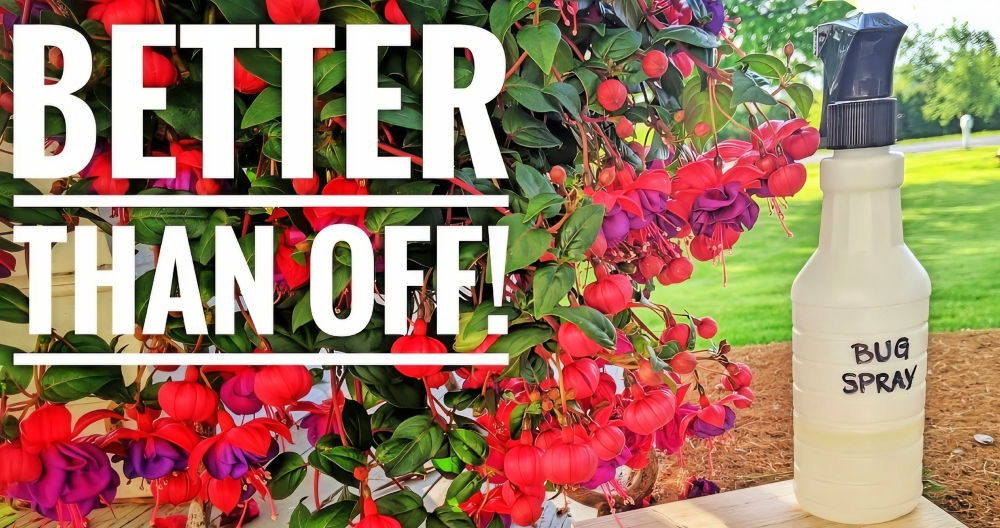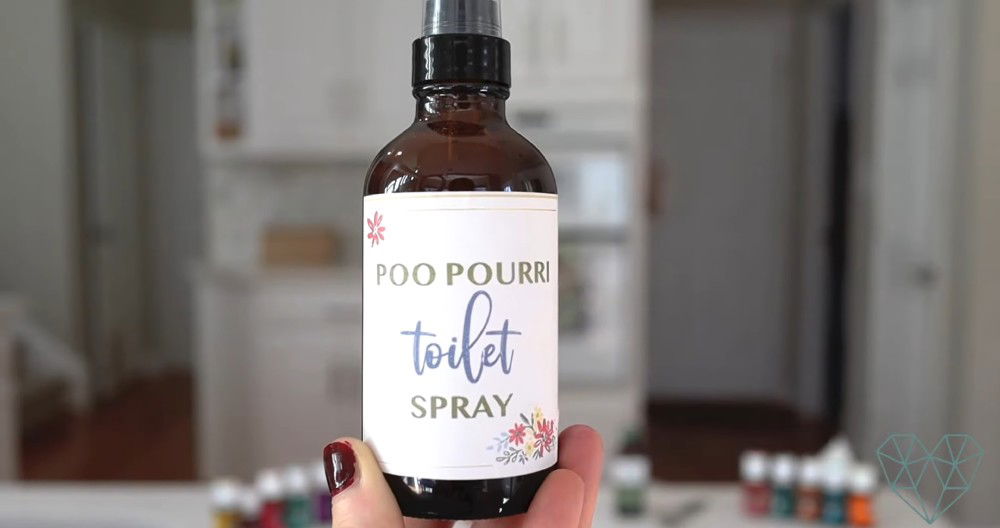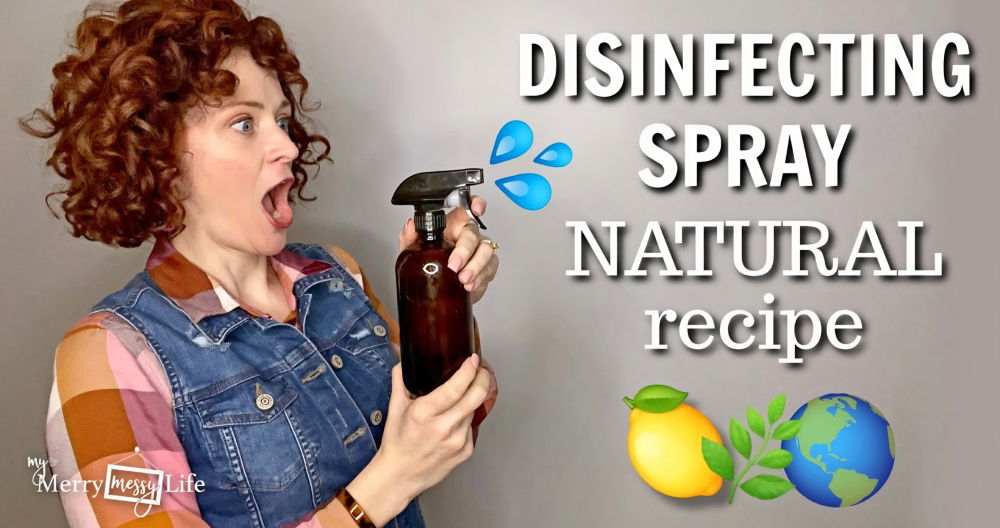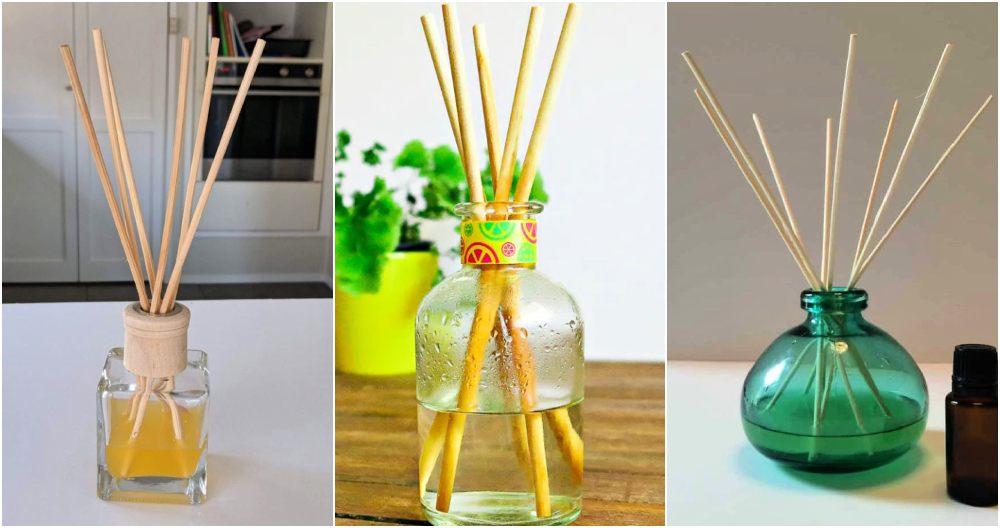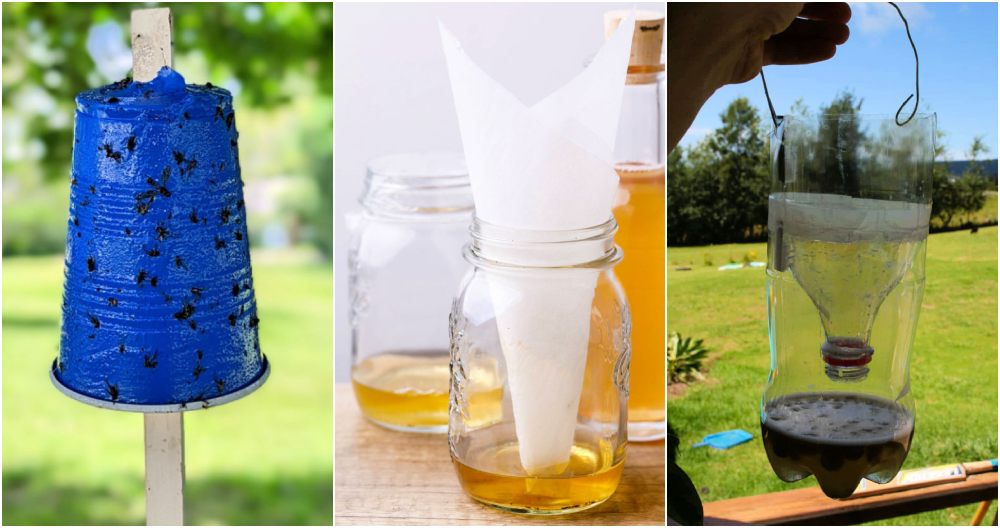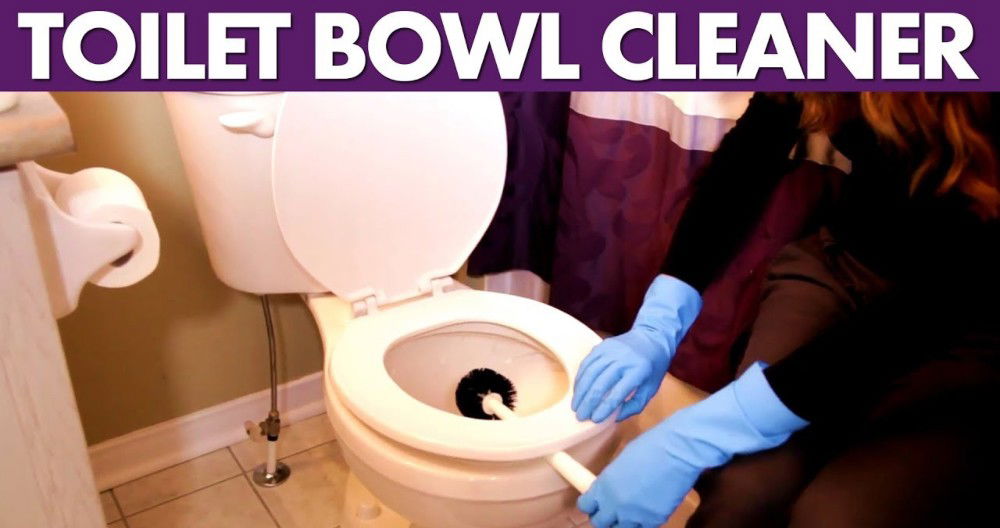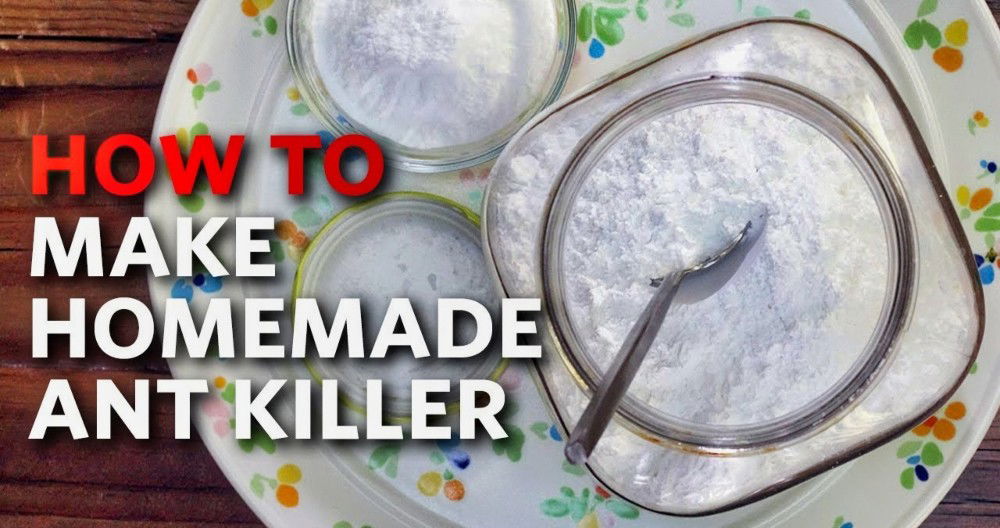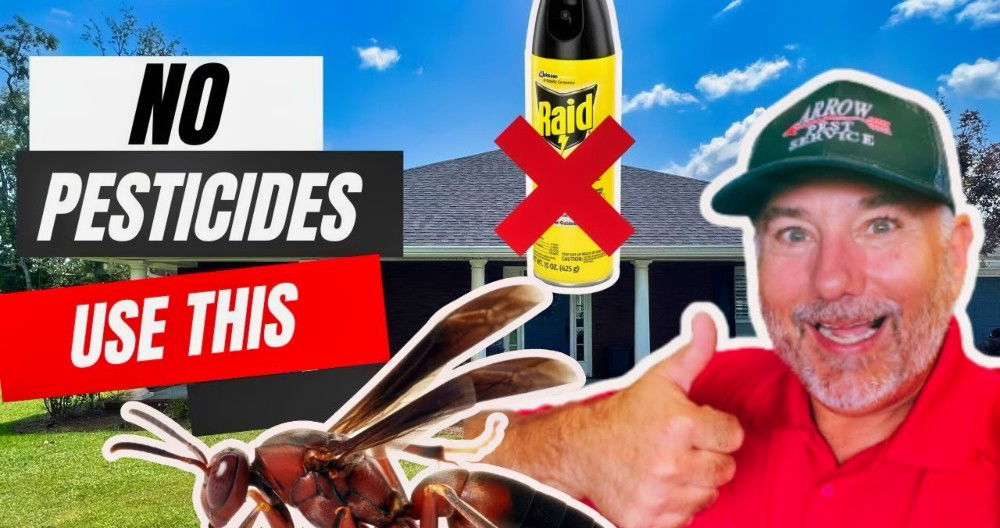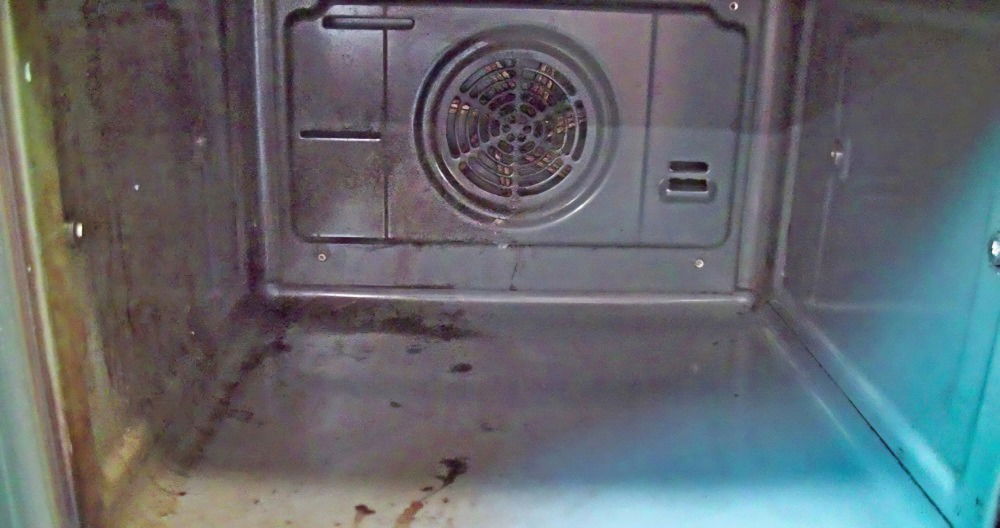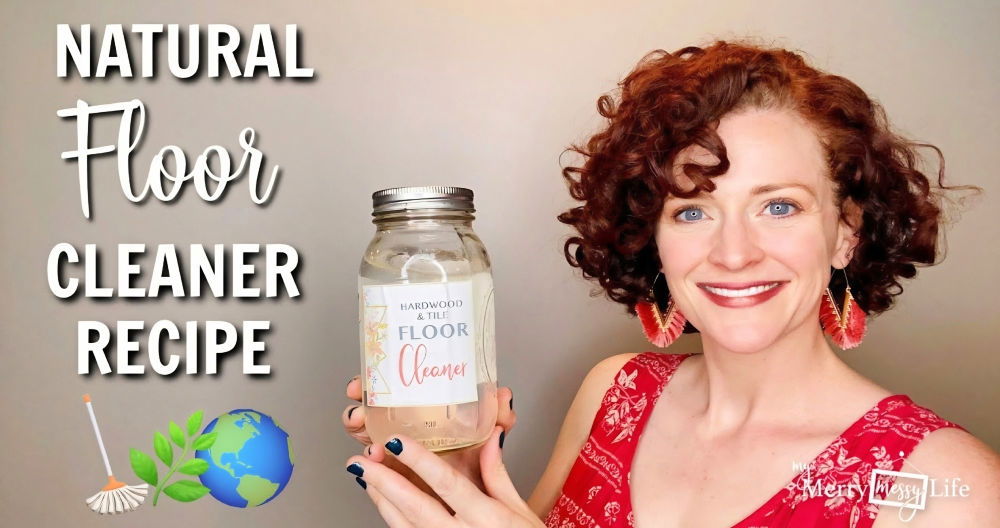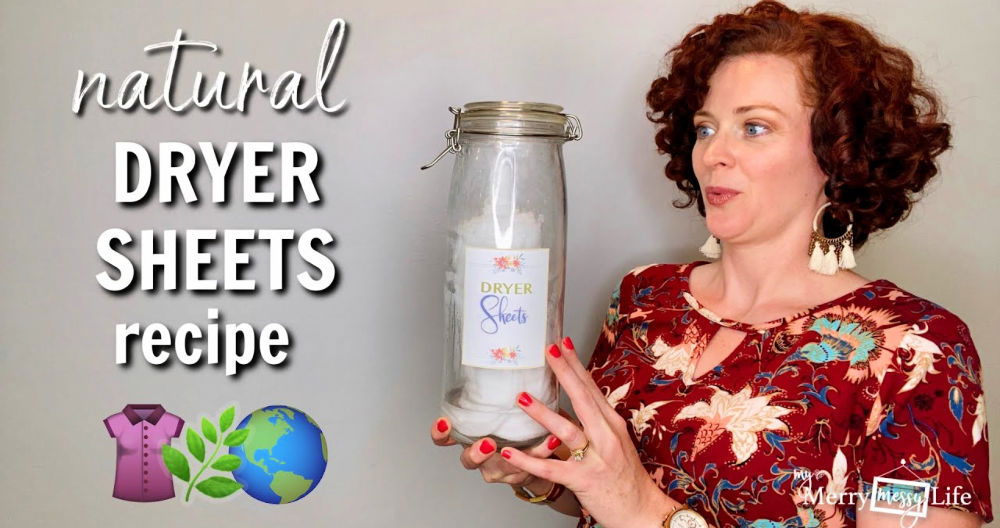Making a homemade spider repellent spray is a simple and effective way to keep spiders away from your home. This DIY spider repellent uses natural ingredients that are safe for your family and pets. Common household items such as essential oils, vinegar, and water can be used to make this spray. With just a few steps, you can have a reliable method to deter spiders without the use of harsh chemicals.
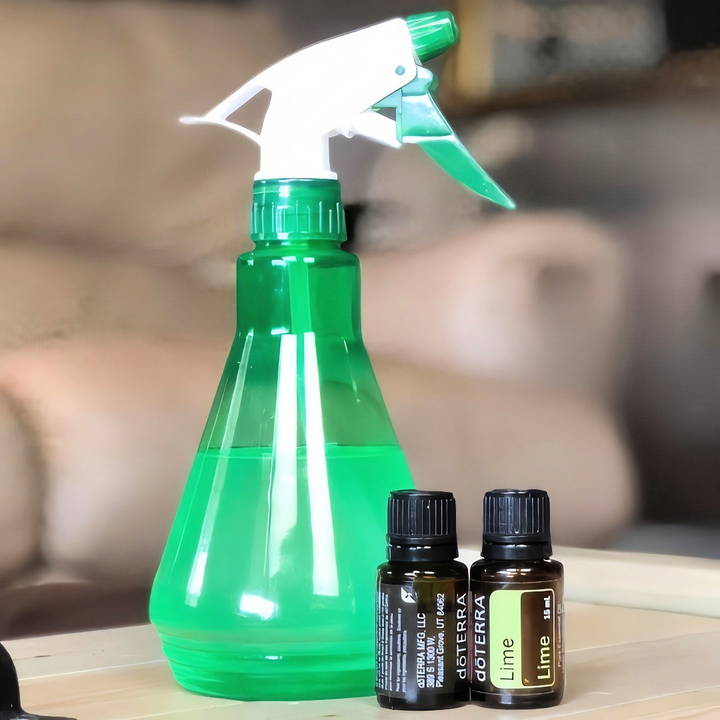
Using a homemade spider repellent is cost-effective and environmentally friendly. It allows you to take control over the ingredients and avoid unnecessary toxins. Additionally, essential oils used in these sprays not only repel spiders but also leave your home smelling fresh. Follow the instructions carefully to ensure the best results.
Ready to get started? Let's explore the step-by-step process to make your own DIY spider repellent in the next section.
Materials Needed
The key to a successful DIY project is gathering the right materials. Here's what you'll need and why each item is important:
- Water (2 cups): Acts as the base for our spray.
- Essential Oils (15 drops each of lime/lemon and peppermint): These oils are effective at repelling spiders and leave a refreshing scent.
- Spray Bottle (1): For easy application of our homemade repellent.
Why These Ingredients?
- Water: It's readily available and serves as a carrier to disperse the essential oils.
- Lime/Lemon Essential Oil: This oil is safe to use around dogs and babies. However, avoid using it around cats.
- Peppermint Essential Oil: Spiders despise peppermint, making it an ideal ingredient in our repellent.
Step by Step Instructions
Learn how to make homemade spider spray with our step-by-step guide. Keep your home spider-free using natural repellents.
Step 1: Gather Your Supplies
Start by gathering all the materials. This will make the process smoother and quicker.
Step 2: Prepare the Spray
- Measure the Water: Pour 2 cups of water into your spray bottle. The water will help disperse the essential oils evenly.
- Add Essential Oils:
- Lime/Lemon Essential Oil: Add 15 drops. This oil not only deters spiders but also leaves a citrusy, pleasant aroma.
- Peppermint Essential Oil: Add 15 drops. Its strong scent is unbearable for spiders but delightful for us.
- Shake Well: Close the spray bottle and shake it vigorously to mix the oils with the water.
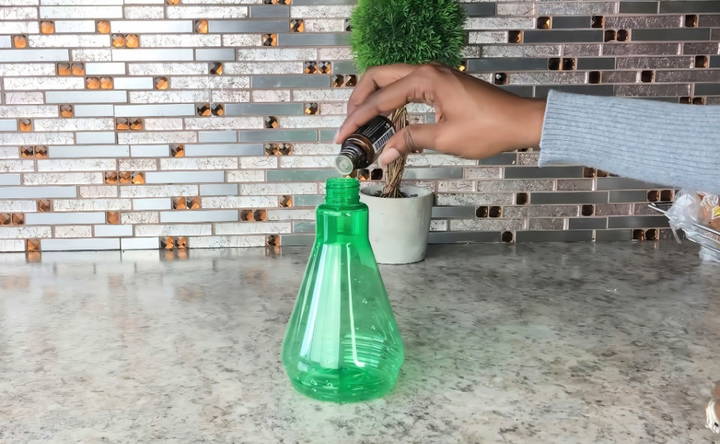
Step 3: Apply the Repellent
- Move Furniture: Spiders often hide in dark corners. Move your furniture slightly to spray underneath.
- Spray Key Areas: Focus on these areas in your living room:
- Cornices and Baseboards: Spray along the edges where the wall meets the floor.
- Window Sills: Spiders often enter through windows.
- Door Frames and Entrances: These are common entry points for spiders.
- Repeat: For optimal results, repeat this application every few weeks or when you notice spiders reappearing.
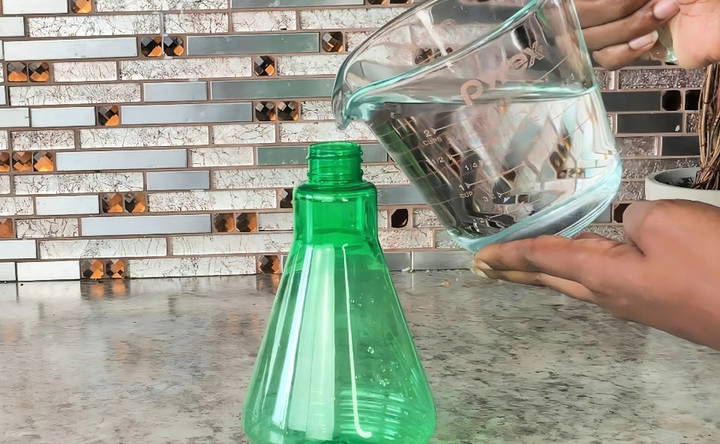
Additional Tips for a Spider-Free Home
Discover effective additional tips for a spider-free home, from cleaning and fixing gaps to outdoor maintenance and using natural repellents.
Keep Your Home Clean
Spiders are attracted to clutter and dark, undisturbed areas. Regular cleaning can help keep them at bay. Make sure to:
- Vacuum Regularly: Especially in corners, under furniture, and along baseboards.
- Declutter: Remove any unnecessary items where spiders might hide.
Fix Gaps and Cracks
Inspect your home for any cracks or gaps that spiders could use to enter. Seal these areas with caulk or weather stripping to prevent entry.
Outdoor Maintenance
Keeping the outside of your home well-maintained can also help deter spiders. Consider the following:
- Trim Vegetation: Keep plants and bushes trimmed back from your house.
- Remove Debris: Clear away any wood piles, rocks, or other debris near your home that could harbor spiders.
Benefits of Using Natural Spider Repellents
- Safe for Kids and Pets: Unlike chemical repellents, our DIY spray is safe to use around your little ones and furry friends.
- Eco-Friendly: Using natural ingredients means you're not harming the environment.
- Cost-Effective: Essential oils and water are inexpensive, making this a budget-friendly option.
Troubleshooting Common Issues with Homemade Spider Spray
When using homemade spider spray, you might encounter a few common issues. Here's a helpful guide to troubleshoot and ensure your spider repellent is effective and easy to use.
Spray Not Working Effectively
- Check Ingredients: Ensure all ingredients are fresh and correctly measured. Expired or improperly measured ingredients can reduce the effectiveness.
- Shake Well: Mixtures can separate over time. Always shake the bottle well before each use to combine the ingredients.
Spray Nozzle Clogs
- Rinse Nozzle: After each use, rinse the nozzle with warm water to prevent clogging.
- Filter Mixture: Strain the mixture through a cheesecloth or fine mesh to remove any particles that could clog the spray nozzle.
Ingredients Not Available
- Find Substitutes: If you're missing an ingredient, look for alternatives that have similar properties. For example, if you don't have peppermint oil, you can use other essential oils like tea tree or eucalyptus.
- Adjust Quantities: If you substitute an ingredient, you may need to adjust the quantity. Start with a small amount, test the effectiveness, and adjust as needed.
Spray Causes Irritation
- Skin Test: Before using the spray widely, test it on a small skin area to check for any allergic reactions.
- Ventilate Area: Use the spray in well-ventilated areas to avoid inhaling any strong fumes.
Not Attracting Spiders
- Target Areas: Focus on areas where spiders are likely to enter your home, such as windows, doors, and cracks.
- Regular Application: Apply the spray regularly, as its effectiveness can diminish over time, especially in outdoor areas.
Safety Concerns
- Keep Away from Pets and Children: Store the spray out of reach of pets and children, as some ingredients can be harmful if ingested.
- Label Bottle: Clearly label the spray bottle with all ingredients and the date it was made.
Ensure your homemade spider spray is safe and effective by following these tips. Be prepared for any issues and know how to fix them.
FAQs About Homemade Spider Spray
Discover all you need to know about homemade spider spray. Get answers to common questions and make your own effective spider-repellent.
Homemade spider spray is a DIY solution used to deter or kill spiders using ingredients commonly found at home. It’s an alternative to commercial products and is preferred by those looking for natural or non-toxic options.
Yes, some homemade sprays can kill spiders. For example, a mixture of equal parts water and white vinegar can be effective. Another option is a saltwater solution, which involves dissolving 1 tablespoon of table salt in a cup of water.
Most homemade spider sprays, especially those made with essential oils and natural ingredients, are safe for use around pets and children. However, it’s important to ensure that pets and children do not ingest the spray and to avoid using essential oils that may be harmful to pets.
For best results, use your homemade spider spray once a week or after cleaning the house. Reapply the spray after heavy rain or if you notice an increase in spider activity around your home.
Most homemade spider sprays are gentle and unlikely to cause damage to furniture or walls. However, it's always a good idea to test a small, inconspicuous area first to ensure there's no adverse reaction, especially when using vinegar-based sprays. If you're using essential oils, be cautious on varnished surfaces as they can be more sensitive.
Conclusion
Keeping your home spider-free doesn't mean you have to resort to harmful chemicals. This DIY natural spider repellent is simple, effective, and safe. Plus, it leaves your home smelling fantastic! I hope you find this guide helpful.


